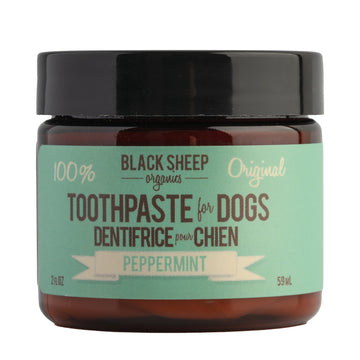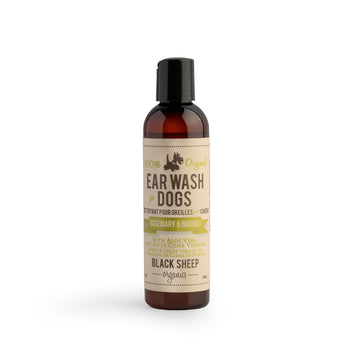Will Coconut Oil Remove Tartar from Dogs' Teeth?
Aug 26, 2024
Ensuring your dog's dental health is crucial, and some might’ve suggested that coconut oil can help. Is it true? This article explores the effectiveness of coconut oil in removing tartar from your dog's teeth. We'll look at its benefits, how to use it, and compare it to traditional dog toothpaste. By the end, you'll have a clear understanding of whether coconut oil is a viable option for your pet's oral care.
The Benefits of Coconut Oil for Dogs' Dental Health
Coconut oil, celebrated for its many health benefits, can be a beneficial enhancement to your dog's dental care routine. Let’s explore how coconut oil can help maintain your dog's oral hygiene.
Overview of Coconut Oil's Properties
Coconut oil is an edible oil extracted from coconut meat. It's rich in medium-chain triglycerides (MCTs), particularly lauric acid, which makes up almost 50% of coconut oil. These distinctive properties of coconut oil offer a range of health benefits, notably its capacity to enhance dental health.
Antibacterial and Antifungal Benefits
One of the standout features of coconut oil is its antibacterial and antifungal properties. Lauric acid, a key component in coconut oil, breaks down into a compound called monolaurin, which can kill harmful bacteria and fungi. This makes coconut oil effective in reducing the bacteria that cause plaque and tartar buildup on your dog's teeth.
How Does Coconut Oil Promote Overall Oral Health in Dogs?
Coconut oil doesn't just fight bacteria; it also helps in other areas of oral health:
- Reduces Gingivitis: Regular use of coconut oil can help reduce inflammation of the gums, known as gingivitis. This condition, caused by plaque buildup, can be painful for dogs and lead to more severe dental issues if untreated.
- Improves Breath: Bad breath in dogs is often a sign of poor dental hygiene. Coconut oil can help neutralize the bacteria that cause bad breath, leaving your dog's mouth fresher.
- Moisturizes Gums: Coconut oil can also moisturize and soothe your dog's gums, reducing the risk of gum disease and discomfort.
Can I Use Coconut Oil as Toothpaste for My Dog?
So now that you know the benefits of coconut oil for your dog's oral health, is coconut oil effective as a toothpaste for dogs? The answer may vary. Normally, you can use coconut oil as an occasional oral cleaning material for your dog but not an everyday choice. It offers several benefits but also comes with some considerations. Dog toothpaste is still the best choice for regular, long-term dog teeth cleaning. But no worry, maybe you can go for both with natural dog toothpaste containing coconut oil.
- Natural Ingredients: Natural dog toothpaste containing coconut oils has no artificial additives or chemicals, making it a safer choice for dogs, especially those with allergies.
- Flavor: Many dogs enjoy the taste of coconut oil, which can make the brushing process more pleasant for both you and your pet.
- Effectiveness: Coconut oil has antibacterial properties that can assist in minimizing the accumulation of plaque and tartar.
|
Aspect |
Coconut Oil toothpaste |
Traditional Dog Toothpaste |
|
Ingredients |
Natural, no artificial additives |
Formulated for dental health |
|
Taste |
Usually liked by dogs |
Various flavors, may vary in appeal |
|
Antibacterial Properties |
Yes, contains lauric acid |
Yes, often includes enzymes |
How to Use Dog Toothpaste Containing Coconut Oil?
Incorporating dog toothpaste that contains coconut oil into your pet's dental care regimen can be highly beneficial. Here's how you can use it effectively to maintain your dog's oral health.
Step-by-Step Guide on Using Dog Toothpaste with Coconut Oil
- Supplies You Need:
- Dog toothbrush with soft bristles
- Dog toothpaste containing coconut oil
- Preparation:
- Ensure your dog is calm and comfortable.
- Place a small amount of the toothpaste on the toothbrush.
- Introduce the Toothbrush:
- Allow your dog to sniff and taste the toothpaste to help them acclimate to it.
- Gently lift your dog's lips to expose the teeth and gums.
- Brushing Technique:
- Angle the toothbrush at 45 degrees against your dog's teeth for optimal cleaning.
- Brush each tooth using gentle, circular motions, paying special attention to areas where plaque commonly accumulates.
- Positive Reinforcement:
- Praise your dog and give a treat after brushing to create a positive experience.
Tips for Effective Brushing
- Start Slowly: If your dog is unfamiliar with brushing, begin with brief sessions and slowly extend the duration as they become more comfortable.
- Routine: Establish a consistent brushing routine, ideally brushing daily or at least several times a week.
- Gentle Pressure: Apply gentle pressure to avoid causing discomfort or damage to the gums.
- Patience and Praise: Be patient and consistently reward your dog to make the process enjoyable.
Safety and Effectiveness Considerations
- Read Labels: Ensure the toothpaste is specifically formulated for dogs and contains safe ingredients.
- Monitor Reaction: Watch for any signs of irritation or allergic reactions and consult your vet if needed.
- Balanced Care: While toothpaste containing coconut oil can aid in reducing tartar and improving oral health, it should be used alongside regular vet check-ups and professional dental cleanings for comprehensive care.
Coconut oil can be a beneficial addition to your dog's dental care routine, offering antibacterial properties that reduce plaque and tartar buildup. It also encourages healthier gums and fresher breath. Whether used as a toothpaste or dietary supplement, it enhances traditional dental practices. Regular brushing with coconut oil, combined with routine vet visits, will help ensure your dog's teeth remain healthy and clean.











